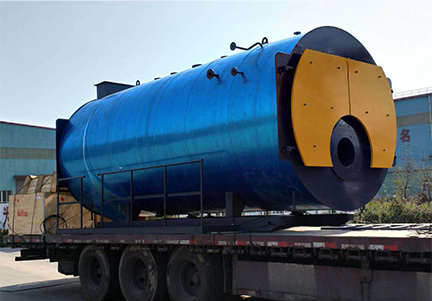Exploring the Benefits of ODM Industrial Boilers for New Zealand's Manufacturing Sector
The Role of ODM Industrial Boilers in New Zealand's Energy Sector
In recent years, New Zealand has made significant strides in optimizing its energy sector, focusing on sustainability and efficiency. One of the key components driving this transformation is the use of industrial boilers, particularly those manufactured under Original Design Manufacturing (ODM) conditions. These boilers play a pivotal role in various industries, ensuring energy efficiency, reducing emissions, and meeting New Zealand's stringent environmental regulations.
Understanding ODM Industrial Boilers
ODM industrial boilers are designed and manufactured by companies that produce equipment for other brands. This allows for customization based on specific requirements, ensuring that the boilers meet the unique needs of different industries. In New Zealand, the adoption of ODM boilers has grown substantially due to their flexibility, scalability, and the ability to integrate innovative technologies.
These boilers are prevalent across several sectors, including food processing, dairy production, and manufacturing. Each sector has specific energy demands, and ODM boilers can be tailored to optimize performance based on these operational needs.
Energy Efficiency and Sustainability
Energy efficiency is crucial in New Zealand's industrial landscape, as businesses strive to minimize operational costs while adhering to environmental regulations. ODM industrial boilers come equipped with advanced technologies, such as high-efficiency burners and heat recovery systems, which significantly reduce energy consumption. This not only leads to cost savings but also contributes to a lower carbon footprint.
New Zealand's commitment to sustainability is reflected in its energy policies, which encourage the use of renewable energy sources. ODM boilers can be designed to run on various fuels, including biomass and biofuels, aligning with the country's goal to transition towards more sustainable energy alternatives.
odm industrial boiler nz

Compliance with Environmental Standards
As an island nation, New Zealand is particularly sensitive to environmental issues, including climate change and pollution. The government has implemented rigorous environmental standards that require industrial operations to minimize emissions. ODM industrial boilers are designed to comply with these standards, incorporating features that reduce harmful emissions such as nitrogen oxides (NOx) and particulate matter.
Moreover, manufacturers often employ state-of-the-art monitoring and control systems in ODM boilers, allowing industries to track emissions and make adjustments in real-time to ensure compliance. This proactive approach not only fosters a responsible industrial environment but also enhances a company’s reputation among consumers who prioritize sustainability.
Market Trends and Future Prospects
The demand for ODM industrial boilers in New Zealand is expected to grow as industries continue to seek innovative solutions for energy efficiency and sustainability. With advancements in technology, such as automation and digitalization, the capabilities of these boilers are constantly evolving, making them more effective and easier to integrate into existing systems.
Additionally, the government’s focus on renewable energy and carbon neutrality by 2050 is likely to drive further investments in ODM boiler technology. By embracing such innovations, New Zealand can set a benchmark for other nations in sustainable industrial practices.
Conclusion
In conclusion, ODM industrial boilers are not just vital components of New Zealand's industrial infrastructure but also align with the nation's vision of sustainability and energy efficiency. As industries continue to evolve and environmental regulations tighten, the role of these boilers will become increasingly significant. By investing in advanced technology and adopting sustainable practices, New Zealand can lead by example, showcasing how industrial operations can thrive in harmony with environmental responsibility.
-
Top Electric Steam Boiler Makers | AI-OptimizedNewsJul.31,2025
-
Top Electric Steam Boiler Manufacturers - High Efficiency SolutionsNewsJul.30,2025
-
Top Electric Steam Boiler Manufacturers – Efficient Industrial SolutionsNewsJul.29,2025
-
Top Electric Steam Boiler Manufacturers | Reliable Industrial SolutionsNewsJul.29,2025
-
OEM Steam Boiler Solutions for Custom Needs | High Efficiency & VersatilityNewsJul.29,2025
-
High-Efficiency Thermal Oil Boiler for Industrial Heating SolutionsNewsJul.29,2025

